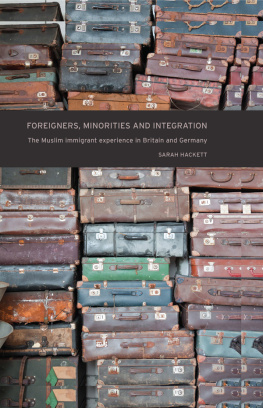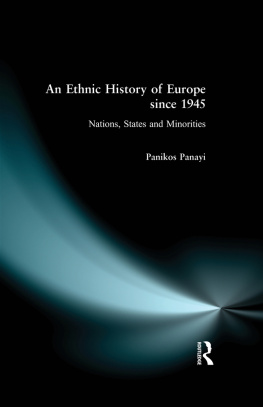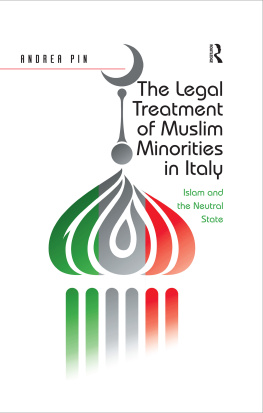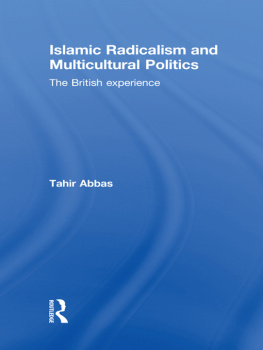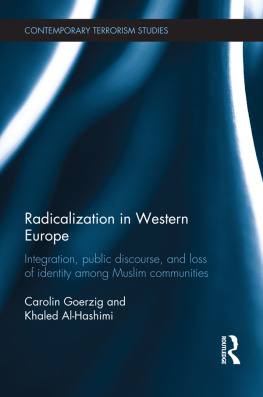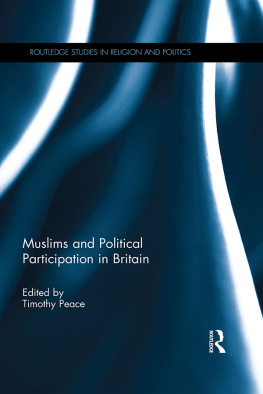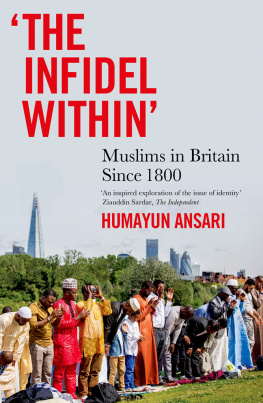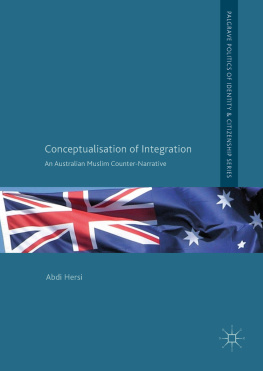Copyright Sarah Hackett 2013
The right of Sarah Hackett to be identified as the author of this work has been asserted by her in accordance with the Copyright, Designs and Patents Act 1988.
Published by Manchester University Press
Oxford Road, Manchester M13 9NR, UK
and Room 400, 175 Fifth Avenue, New York, NY 10010, USA
www.manchesteruniversitypress.co.uk
Distributed in the United States exclusively by
Palgrave Macmillan, 175 Fifth Avenue, New York,
NY 10010, USA
Distributed in Canada exclusively by
UBC Press, University of British Columbia, 2029 West Mall,
Vancouver, BC, Canada V6T 1Z2
British Library Cataloguing-in-Publication Data
A catalogue record for this book is available from the British Library
Library of Congress Cataloging-in-Publication Data applied for
ISBN 978 0 7190 8317 4 hardback
First published 2013
The publisher has no responsibility for the persistence or accuracy of URLs for any external or third-party internet websites referred to in this book, and does not guarantee that any content on such websites is, or will remain, accurate or appropriate.
Typeset
by Action Publishing Technology Ltd, Gloucester
This book is a study of two post-war Muslim ethnic minority communities that have seldom featured in the academic literature or the public debate on migration to Britain and Germany: those of Newcastle upon Tyne and Bremen. It is the first work to offer a comparative assessment of the experiences of Muslims at a local level in these two countries. Its focus on the employment, housing and education sectors is a novel approach that exposes both the manner in which migrants have negotiated their local host surroundings and the role played by minority agency. The conclusions transgress geographical and chronological frameworks, and offer a critical reassessment of ethnic minority integration and the role played by Islam in the migration process. The use of Newcastle and Bremen as case studies as well as the comparative nature allow for an in-depth level of detail and analysis, and for a comprehensive assessment of both Muslim migrant communities from their arrival during the 1960s through to their emergence as fixed attributes on the cities landscapes at the turn of the millennium.
This book began as a PhD thesis at the University of Durham in 2004, and stemmed from undergraduate and MA level work that addressed Muslim migrant populations in other European countries, including France and Spain. On an academic level, it was my interest in the particulars of Britain and Germanys immigration histories and frameworks, and the intricacies of ethnic minority integration, that initially formed the basis of this study. I was further intrigued by the ever-increasing importance awarded to the terms Muslim and Islam in both academic and political debates. This project was also driven by a personal interest in the relationships and interactions between people of different backgrounds, ethnicities and cultures that developed during my time as an American growing up in a number of European countries.
My curiosity and enthusiasm were further heightened by the fact the London bombings of July 2005, Islamic fundamentalist terrorism, and disputes regarding single faith schools, religious instruction, religious discrimination legislation, the wearing of headscarves amongst teachers and the building of mosques. More recently, Angela Merkel and David Camerons claims that multiculturalism has failed have further triggered debate about Britain and Germanys Muslim ethnic minority communities.
This climate of political and academic frenzy certainly made researching and writing about Muslims a somewhat daunting task, yet it also appeared to be a pertinent time at which to conduct an investigation into the history of two often forgotten Muslim migrant populations. It seemed logical to assume that the exposure of these communities settlement patterns and practices, as well as a survey of their respective local governments policies and measures, might help contextualise and provide a framework for these increasingly heated debates. It was also hoped that a study of numerically smaller Muslim ethnic minority communities that had largely escaped the limelight would constitute an additional branch to the existing literature. Furthermore, this book has developed from an ambition to shift attention away from the often too imposing overarching crises towards an understanding of the everyday lives of British and German Muslims.
Yet a study of Muslim migrant communities in Britain and Germany during the post-war period is not without its difficulties, and is prone to certain generalisations and prioritisations. I am conscious, for example, that Muslim ethnic minorities in neither Newcastle nor Bremen constitute one homogenous group, despite the term community suggesting otherwise. Furthermore, in choosing to focus on Muslims, a study is almost undoubtedly prioritising religious identity over other factors, such as ethnicity, class and gender. Attempts have been made to avoid such pitfalls whenever possible and differences between Muslims of different ethnic backgrounds are acknowledged as are numerous markers of identity.
An additional difficulty is that this book investigates Muslim ethnic minorities before Islam was considered at an official level and deemed an influential factor in the migration experience. As a result, the sources drawn upon are overwhelmingly compiled along ethnic lines. Whilst this is the case for any study adopting a historical approach to Muslim migrants in Britain and Germany, I feel that it should nevertheless be openly recognised. Lastly, this book is a keen advocate of ethnic minority self-determination and independence, and stresses the role that migrant agency has played in the integration process in both Newcastle and Bremen. Yet whilst it exposes the winners of migration, I am keen to avoid generalisation and accept that there have most certainly also been losers. Despite its limitations however, I am hopeful that the final product will make a small contribution to the ever-growing body of literature on Muslim migrants in both Britain and Germany.
I received a great deal of help and support with this project from the very beginning. I am thankful for a PhD bursary from the University of Durham, as well as for grants received from the German History Society, the Deutscher Akademischer Austauschdienst (DAAD) and the German Historical Institute London (GHIL), all of which enabled me to carry out the necessary research during my time as a PhD student. Yet the book has moved on from the PhD thesis and I am thankful for the financial support that I received from the Culture and Regional Studies Research Beacon at the University of Sunderland, which allowed me to conduct further research in Bremen during the summer of 2010, and attend numerous conferences where I was able to test some of my ideas and arguments.
I was very fortunate to have Professor Lawrence Black and Dr Kay Schiller as supervisors for my PhD. I am extremely grateful for their guidance and advice, and for the generous amount of time, interest and patience that they granted to my project. I have also benefited from the help, direction and encouragement of many others, both within and outside the field of migration studies and I owe special thanks in particular to Professor Robert Colls, Professor Jo Fox, Professor David Moon, Dr Andrzej Olechnowicz, Professor Panikos Panayi and Professor Ceri Peach. I would also like to thank my colleagues at the University of Sunderland for their continued support, especially Dr Delphine Doucet, Dr Kathleen Kerr-Koch, Dr Susan Mandala, Dr Geoffrey Nash, Professor Peter Rushton and Dr Kevin Yuill. I am extremely grateful to Dr Dieter K. Buse for his suggested reading on identity in Bremen, and to Nadeem Ahmad for going out of his way to respond to my queries and provide me with information on Newcastle.

